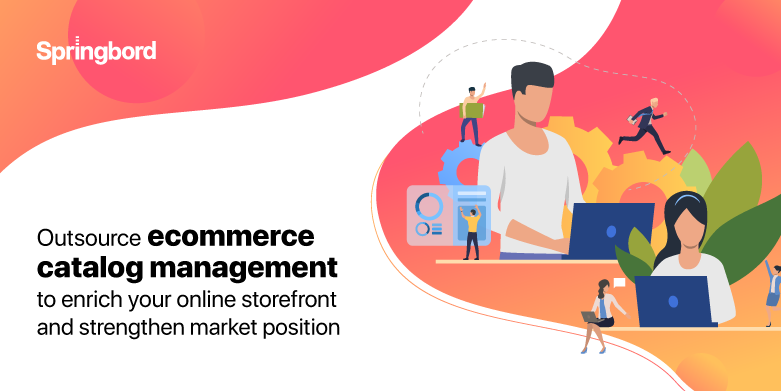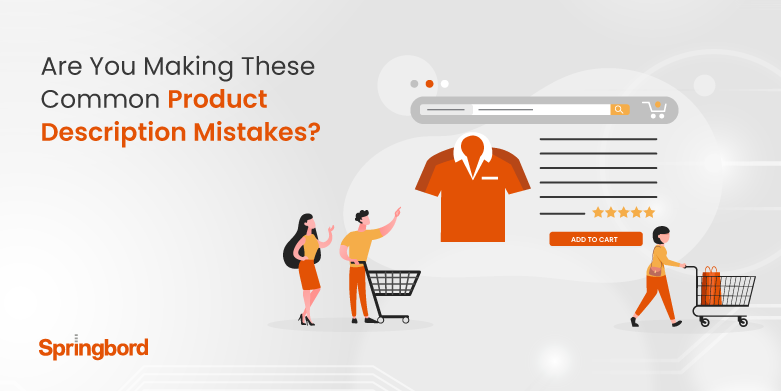As the e-commerce industry grows and evolves, customization and personalization have become essential components for businesses seeking to gain a competitive edge.
With the rise of online shopping, customers have come to expect personalized experiences that cater to their unique preferences and needs.
In this blog, we will explore the role of customization in e-commerce and how it can help businesses improve customer engagement, increase conversions, and build brand loyalty.
Personalization in E-commerce: What it is and Why it Matters
Personalization in e-commerce refers to the practice of tailoring the online shopping experience to individual customers based on their preferences, behavior, and purchase history.
Personalization can take many forms, such as recommending products based on a customer’s browsing history, sending personalized emails with special offers, or even customizing the design and content of a website to match a customer’s interests.
One cannot overstate how crucial personalization is to online shopping.
According to a recent survey, 90% of consumers find personalization appealing, and 80% are more likely to do business with a company that offers personalized experiences.
Personalization helps businesses create a more engaging and relevant shopping experience, which can lead to increased conversions, higher order values, and improved customer loyalty.
The Benefits of Customization in E-commerce
Improved Customer Experience
Customization allows businesses to create a more personalized and engaging shopping experience for customers.
By tailoring product recommendations, offers, and content to individual preferences and behavior, businesses can improve the relevance and value of their offerings, making it easier for customers to find and purchase what they need.
This can lead to higher customer satisfaction and loyalty, as well as increased repeat business and referrals.
Increased Conversions
Personalization can also help businesses increase conversions by reducing the barriers to purchase.
By providing personalized product recommendations and offers, businesses can help customers find products they are interested in more quickly, which can lead to a faster path to purchase.
This can also help reduce cart abandonment rates, as customers are more likely to complete a purchase when they feel that the shopping experience is tailored to their needs.
Higher Order Values
Customization can also help businesses increase the average order value by suggesting complementary or higher-priced products to customers based on their purchase history or behavior.
By offering personalized product bundles or special offers, businesses can encourage customers to add more items to their cart, leading to increased revenue and profitability.
Improved Customer Loyalty
Finally, customization can help businesses build stronger relationships with customers by creating a more personalized and engaging shopping experience.
By offering personalized recommendations, special offers, and content, businesses can show customers that they understand their needs and are committed to providing the best possible experience.
This has the potential to boost customer retention, return business, and positive recommendations.
Best Practices for Implementing Personalization in E-commerce
Collect and Analyze Customer Data
To implement effective personalization strategies, businesses must first collect and analyze customer data, including browsing history, purchase history, demographics, and preferences.
This data can be used to create customer segments, develop personalized content and offers, and improve the relevance and value of the shopping experience.
Use Personalization Tools and Technologies
There are many personalization tools and technologies available that can help businesses implement effective personalization strategies, such as recommendation engines, personalized email marketing platforms, and website personalization software.
These tools can help businesses automate the personalization process, making it easier and more efficient to deliver personalized experiences at scale.
Start Small and Iterate
Implementing personalization strategies can be a complex and time-consuming process, so it’s important to start small and iterate over time.
Businesses should focus on implementing one or two personalization tactics at a time, such as personalized product recommendations or email marketing campaigns, and then analyze the results to determine what is working and what needs improvement.
By gradually expanding and refining personalization strategies, businesses can optimize their approach and maximize the impact of their efforts.
Balance Personalization with Privacy
While personalization is essential for creating engaging and relevant shopping experiences, it’s important to balance this with respect for customer privacy.
Businesses must ensure that they are collecting and using customer data in a transparent and ethical manner and that they are providing customers with clear options for opting out or controlling the use of their data.
Test and Measure
To ensure the effectiveness of personalization strategies, businesses should test and measure their efforts regularly.
By analyzing customer behavior and engagement metrics, businesses can determine what is working and what needs improvement, and then adjust their strategies accordingly.
In Conclusion
Personalization is no longer a nice-to-have feature in e-commerce – it’s a necessity for businesses looking to stay competitive in today’s market.
Springbord implements effective personalization strategies, so businesses can improve customer engagement, increase conversions, and build strong, lasting relationships with their customers.
We achieve effective personalization through a thoughtful and strategic approach in an e-commerce business, with a focus on collecting and analyzing customer data, using personalization tools and technologies, balancing personalization with privacy, and continuously testing and measuring efforts to optimize results.
With these best practices in mind, businesses can unlock the full potential of personalization in e-commerce and drive long-term success.







